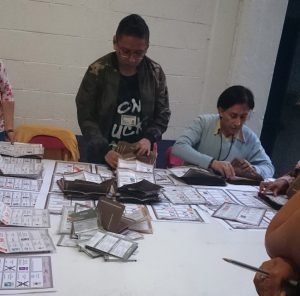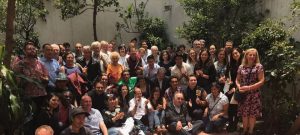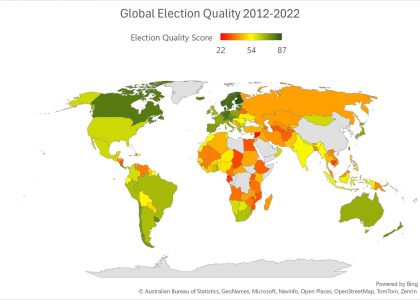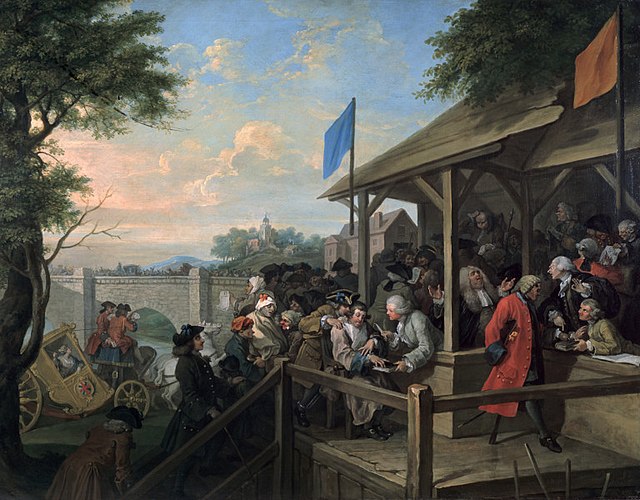Following a landslide victory on 1 July, Mexico’s president elect Andrés Manuel López Obrador, leader of the leftist MORENA coalition, announced that his government will be ‘for the people, of the people and with the people’. UEA’s Hazel Marsh, in Mexico with the Red Universitaria y Ciudadana por la Democracia (RUCD), was an independent election observer.
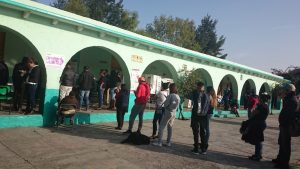
Numerous academic studies and reports by national and international organisations document a serious crisis of impunity, censorship, corruption and violation of human rights in Mexico, an ‘epidemic’ of forced disappearances, as well as intimidation and assassination of journalists. Since campaigning for the 1 July elections started in September 2017, over 130 candidates and party workers have been assassinated in what is the most violent election period in living memory. The Red Universitaria y Ciudadana por la Democracia (University and Civic Network for Democracy, RUCD) was formed in March 2018 ‘out of concern about the precarious state of democracy in Mexico and the low credibility of the country’s electoral institutions’. It is with this group that I travelled to Mexico to act as an international observer of the 1 July elections.
High levels of corruption and fraud have mired previous elections in Mexico, with the Partido Revolucionario Institucional (Institutional Revolutionary Party, PRI), the political party that for over seventy years controlled virtually every political office in Mexico at federal and local levels, standing accused of massive vote-buying. As I learned in the training provided for election observers, the most common electoral crimes in Mexico fall into four categories. First is turismo electoral, or ‘election tourism’. This often consists of people being taken on trips or holidays to areas of the country where they do not reside, but where they then vote (for their holiday funders’ preferred candidate) using a false address. Second is via the manipulation of social programmes and state benefits. Approximately 60% of Mexicans live on or below the poverty line and receive some kind of state benefit; in the poorest areas of the country, this is as high as 90%. In order to continue to receive benefits, people can be coerced into voting for particular candidates, or they may have their ID card temporarily withheld, thus preventing them from voting. Third is vote buying, which consists of people exchanging their votes for cash or other material benefits such as mattresses, medicines or mobile phones. Finally, in some of the poorest regions such as Chiapas, Guerrero and Oaxaca, polling stations may be attacked or burned down; some polling stations have never produced election results because of sabotage of this kind.
With over 3,000 posts and seats at all levels up for election, the elections of 1 July were the largest in Mexican history. Besides a new President, Mexican voters elected 128 members of the country’s Senate and 500 members of the Chamber of Deputies. Under Mexico’s constitution, current President Enrique Peña Nieto (PRI) was not allowed to stand for a second term. Presidential candidates included Ricardo Anaya (PAN), José Antonio Meade (PRI), Andrés Manuel López Obrador (MORENA), and the independent, Jaime Rodríguez Calderón.
On election day, polling stations closed at 6pm. By 8.30pm, Meade, candidate for the ruling PRI party, had conceded defeat in the face of overwhelming support for López Obrador; the quick count indicated that the MORENA coalition had won more than half of all votes, with a turnout of around 65%. Jubilant Mexicans filled central Mexico City, chanting es un honor, estar con Obrador (‘it’s an honour to be with Obrador’). At midnight, López Obrador gave a speech in a packed Zócalo Square, in which he called for calm during the period of transition (he will not take up office until 1 December 2018), named several of his ministers, pledged to tackle the country’s social problems, and promised not to let Mexico down.
As stated in the RUCD press statement of 2 July, the team of international observers saw some irregularities in the states we visited, but were overall impressed by the turnout and commitment of so many Mexicans. However, post-election violence presents an ongoing threat to the democratic process, and RUCD continues to monitor the situation. It is to be hoped that both internal and external actors will accept the election results and allow López Obrador to form a government ‘for the people, of the people and with the people’.
RUCD can be followed on Facebook @Red.Democracia.2018 and Twitter @RCUD.2018
(Hazel Marsh’s flights were paid for by UNITE).
